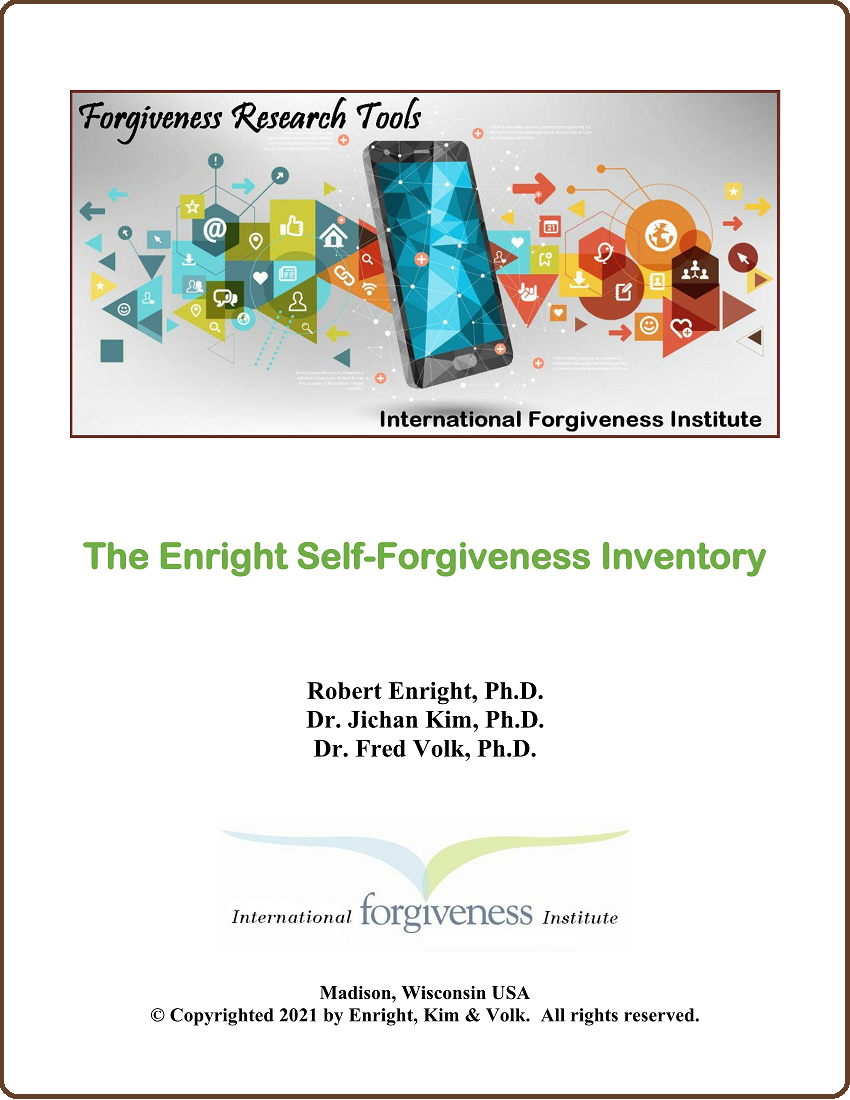Coveted Forgiveness Research Tools Now Available at No Cost
The man Time magazine has called “the forgiveness trailblazer” is blazing forward in a new direction by offering to social science and moral development researchers around the world the accumulation of forgiveness research tools he has developed over the past 35 years. And he is giving them away at no cost and with no strings attached.
Dr. Robert Enright, co-founder of the International Forgiveness Institute (IFI), announced today that he is now providing his highly regarded scientific research tools absolutely free to any forgiveness researcher who requests them.
“This initiative is designed to help expand and broaden the growing collection of crucial forgiveness knowledge,” Dr. Enright says. “This area of moral development has already had significant impacts in the realms of education, medical treatment, and emotional therapy, so why not try to expand on that?”
 Often introduced as “Dr. Forgiveness” because of his 35-year academic commitment to researching and implementing forgiveness programs, Dr. Enright is acknowledged as the unquestioned pioneer in the scientific study of forgiveness. The research tools he and his associates have developed have become highly coveted tools because of his meticulous validation of the scientific procedures he employs.
Often introduced as “Dr. Forgiveness” because of his 35-year academic commitment to researching and implementing forgiveness programs, Dr. Enright is acknowledged as the unquestioned pioneer in the scientific study of forgiveness. The research tools he and his associates have developed have become highly coveted tools because of his meticulous validation of the scientific procedures he employs.
All of Dr. Enright’s research is done in conjunction with the University of Wisconsin-Madison where he is a Professor of Educational Psychology. You can access his peer-reviewed empirical studies, research abstracts, and published studies at Forgiveness Research.
In addition to sharing his research results, Dr. Enright is now making available his user-validated forgiveness research tools at no cost. Those tools include:
- The Enright Forgiveness Inventory-30 (EFI-30) – This tool is a shorter version of the Enright Forgiveness Inventory for Adults that has become the interpersonal forgiveness measure of choice for research professionals in the U.S. and abroad since its development in 1995. The EFI-30 reduces the number of items from 60 to 30 for the purpose of a more practical assessment of this construct. Data from the United States were used in the creation of the new measure and applied to seven nations: Austria, Brazil, Israel, Korea, Norway, Pakistan, and Taiwan to develop its psychometric validation.
. - The Enright Self-Forgiveness Inventory (ESFI) – This measure is based on the conceptualization of forgiveness as a moral virtue. The ESFI is a 30-item scale featuring six subscales with five items each. Five additional items at the end of the scale allow for measurement of pseudo self-forgiveness (PSF). Although several competing self-forgiveness measures exist, Dr. Enright’s is the only one that captures the idea that self-forgiveness is a moral virtue that includes behavior toward the self.
. - The Enright Group Forgiveness Inventory (EGFI) – Newly validated and published earlier this year, the EGFI has 56 items across seven subscales with each subscale having eight items. Those subscales measure a group’s motivation and values regarding forgiveness, peace, and friendliness toward the other group. Like the ESFI, it also has a PSF component and has dramatic implications for its ability to enhance peace efforts in the world.
.
To develop and validate the EGFI, Dr. Enright worked with a team of 16 international researchers who collected data from 595 study participants in three different geographic and cultural settings of the world—China and Taiwan, Slovenia, and the US. The study team’s findings documented that this new measure has strong internal consistency as well as convergent and discriminant validity.
. - The Enright Forgiveness Inventory for Children (EFI-C) – The EFI-C is an objective measure of the degree to which a child forgives another who has hurt him or her deeply and unfairly. It is a 30-item scale similar to the 60-item adult version and is presented orally to very young children and in writing to those who can read well. Thanks to a researcher in Pakistan, the EFI-C is now available in the Urdu language—the native language of an estimated 230 million people, primarily in South Asia.
Dr. Enright is the author or editor of seven books. He published the first social scientific journal article on person-to-person forgiveness and the first cross-cultural studies of interpersonal forgiveness. He also pioneered scientific studies of forgiveness therapy and developed an early intervention to promote forgiveness–the 20-step Process Model of Forgiving.
By publicly sharing all his research studies and results in more than 100 publications over the years, Dr. Enright has earned recognition as being in the forefront of the science of forgiveness. The Los Angeles Times described Dr. Enright as “the guru of what many are calling a new science of forgiveness.” The Christian Science Monitor called him “the father of forgiveness research.”
Learn more about Dr. Enright’s free tools on the Forgiveness Research Tools page.



